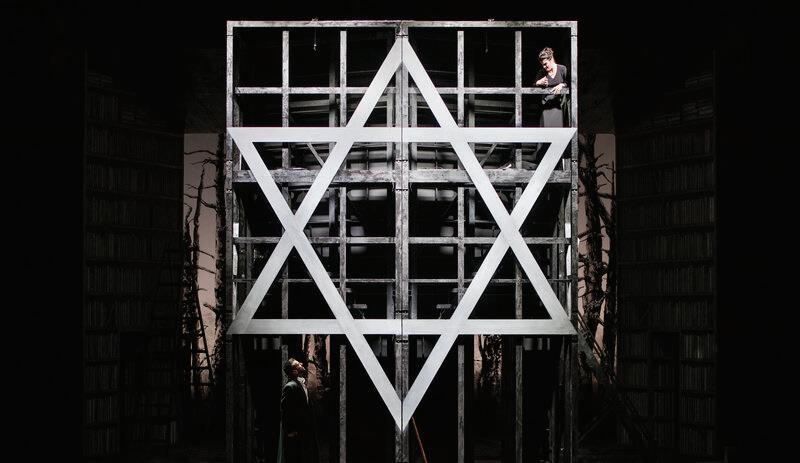
13 minute read
IMPOSSIBLE LOVE
AROUND THE
COMMUNITY Opera Australia showcases impossible love
OPERA AUSTRALIA
Acclaimed French director Olivier Py’s new production of La Juive will finally have its Australian premiere at the Sydney Opera House this month.
Pandemic restrictions shut down its scheduled opening in 2020,
Big and tragically romantic, Fromental Halévy’s heart-wrenching opera about forbidden love between a Christian and a Jew offers audiences a rare treat.
Two sopranos, two tenors and a world-class bass will raise their voices collectively.
La Juive has been cast with some of the country’s finest singers developed by Opera Australia over the past decade.
Sopranos Natalie Aroyan and Esther Song sing the parts of Rachel and Princess Eudoxie respectively.
Bass David Parkin plays Cardinal Brogni and Diego Torre will feature as Eléazar.
Argentinian tenor Francisco Brito will make his Opera Australia debut in the role of Leopold, having sung it in Konstanz, Germany, in 2018.
Celebrated Italian maestro Carlo Montanaro will conduct the Opera Australia Orchestra and Chorus. Py’s updated setting of 1930s France will add to the drama.
It will provide an extra layer of historical context to the secrets and impossible choices, bitter rivalries and persecution, forgiveness and sacrifice that play out. Halévy’s most successful opera, La Juive continues to deliver a relevant and important message about religious tolerance. The opera features an impressive set and elegant monochromatic costume designs by Pierre-André Weitz and striking lighting by Bertrand Killy. Py’s version was called “highly impactful” and received a five-star review from Bachtrack when it premiered in Lyon in 2016. It is a co-production between Opéra National de Lyon and Opera Australia at Joan Sutherland Theatre from March 9th to 26th.
Bookings can be made on this link: https://opera.org.au/productions/lajuive-sydney/
Photo: Stofleth
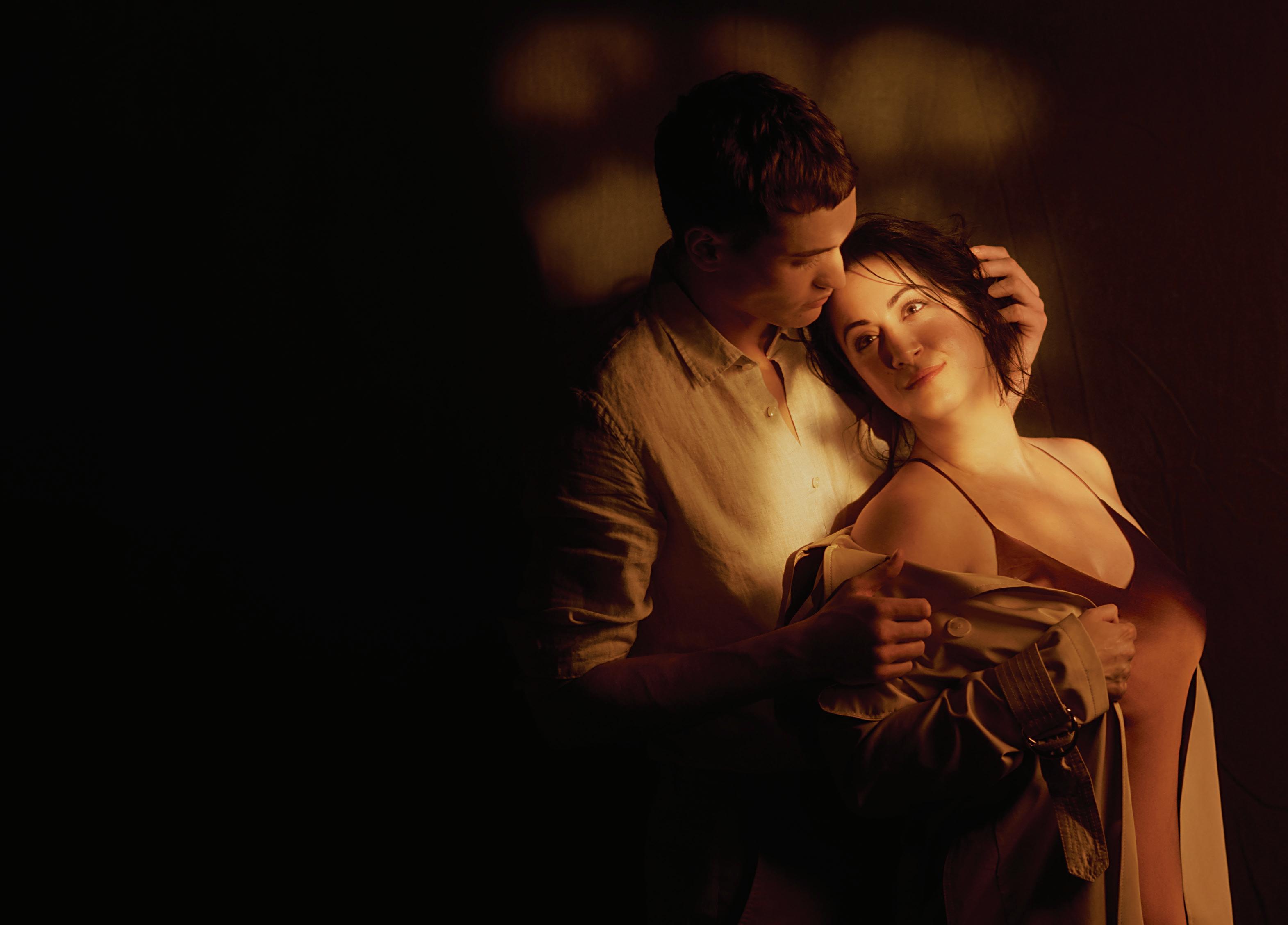
WORLD NEWS
DR. YVETTE ALT MILLER COURTESY: AISH.COM
President Volodymyr Zelensky: six facts
Ukraine’s youthful and unconventional Jewish president is inspiring his nation.
As the war in Ukraine continues, many people around the world are rallying around President Volodymyr Zelensky, Ukraine’s unconventional, Jewish, 44-year-old leader. Here are six facts about President Zelensky and the crisis in Ukraine today.
1. Grandson of Holocaust Survivors
Volodymyr Zelensky was born on 25th January, 1978 in Kryvyi Rih, a city in eastern Ukraine. His family is Jewish and, like many Ukrainian Jews, was scarred by the Holocaust. (Zelensky has often drawn attention to the fact that approximately a quarter of all Jews murdered in the Holocaust came from Ukraine, a fact that’s not widely understood.)
During World War II, the town of Kryvyi Rih was occupied by Nazi Germany. It was home to a sizeable Jewish community and in the years before the Nazi takeover of the town, many Jews fled eastward. Zelensky’s grandmother was one of the Jews who left. “My grandmother was living in Kryvyi Rih, in a part of south Ukraine which was occupied by the fascists,” Zelensky explained. “They killed all the Jews who remained. She had left in an evacuation of Jews to Almaty, Kazakhstan. Many people fled there. She studied there. She’s a teacher. After World II, she came back. That’s where I was born.”
In 2020, when Zelensky travelled to Israel to mark the 75th anniversary of the liberation of Auschwitz, he told Israel’s then Prime Minister Benjamin Netanyahu stories about Ukraine during the Holocaust. Before he concluded, he said he had one more tale to tell, “about a family of four brothers”.
Three of them, their parents and their families became victims of the Holocaust. All of them were shot by German occupiers who invaded Ukraine. The fourth brother survived. Two years after the war, he had a son and in 31 years he had a grandson. In 40 more years, that grandson became president, and he is standing before you today, Mr Prime Minister.
2. An “Ordinary Soviet Jewish Family”
Zelensky describes his family as “an ordinary Soviet Jewish family.” He noted that since most instances of religious expression were banned in the Soviet Union, his family was not particularly observant, but they were aware of their Jewish heritage.
His family moved to Mongolia for a time while he was young, but returned in time for Zelensky to attend school in Kryvyi Rih. He grew up with Russian as his first language and also speaks fluent Ukrainian and English.
In the early 1990s, after the demise of the Soviet Union, many Soviet Jews rushed to emigrate, moving to Israel or the United States. Approximately 1.5 million Jews fled in those heady years. Zelensky’s great aunt and her family moved to Israel in the 1990s, but he and his immediate family remained, joining several hundred thousand Jews who chose to stay in Ukraine and Russia.
Zelensky attended the Kryvyi Rih Economic Institute, a branch of Kyiv National Economic University. He graduated in 2000 with a law degree. He met his wife, Olena Zelensky, a screenwriter and spokesperson for Ukrainian women’s rights, in college. (Olena Zelensky is not Jewish. President Zelensky has not commented on unsubstantiated rumours that he converted to Christianity.) Their daughter Oleksandra was born in 2004 and their son Kyrylo was born in 2013.
3. Career as a Comic Actor
Zelensky never practiced law. He started acting in college and eventually founded his own production company called Kvartal 95 – “Neighborhood 95” – named after the area in Kryvyi Rih where he grew up. He turned to comedy and became a hit throughout the former Soviet Union, performing stand up and acting in some comic films. In 2006, he won Ukraine’s “Strictly Come Dancing” television competition. He also performed in Israel. He told an Israeli newspaper he’d done shows in “Tel Aviv, in Beersheba, in Haifa and in Jerusalem. In so many cities. So, I know Israel. I know people there.”
In 2015 Zelensky began starring in a Ukrainian television show, Servant of the People. The year before, Ukraine’s unpopular President Viktor Yanukovych was forced out of office and President Petro Poroshenko was elected instead. It was a tumultuous time in Ukrainian politics: Russia invaded and later annexed Ukraine’s Crimean Peninsula in 2014; Russian-backed insurgents battled Ukrainian forces in the republics of Donetsk and Luhansk in the east of the country; and endemic corruption sapped Ukrainian’s confidence in their government.
In Servant of the People, Zelensky played Vasiliy Goloborodko, a history teacher who shoots to fame after one of his students videos him railing against official corruption and becomes president. His character struck a chord with ordinary Ukrainians who longed for a plain-talking honest politician like Goloborodko.
After years of playing President Goloborodko on television, Zelensky began to harbour political ambitions of his own. In 2018, he registered “Servant of the People” as an official political party.
4. President Zelensky
Campaigning for the presidency, Zelensky relied on his comedy background, posting humorous speeches and skits on social media. His unusual campaigning style paid off: In Ukraine’s 2019 presidential election, Volodymyr Zelensky won an astonishing 73% of the vote.
His path to governing wasn’t always smooth. He faced some accusations of being close to corrupt figures and was accused of bringing in members of his TV production company as key political advisors. Within days, Russia declared a major provocation, extending Russian citizenship to people living in eastern Ukrainian regions controlled by separatist insurgents whom Russia was backing in Donetsk and Luhansk.
Zelensky responded to this major assault on Ukrainian territorial integrity with humour, posting on Facebook that he would extend Ukrainian citizenship to people in Russia and others “who suffer from authoritarian or corrupt regimes.”
5. Recognizing Jewish History
When Zelensky ran for office, the Chief Rabbi of Dnipro said to the New York Times: “He should not run because we will have pogroms here again in two years if things go wrong.” Those fears proved misplaced. Instead, Zelensky was open about his Jewishness in office. He oversaw an ongoing project to rename streets and monuments throughout Ukraine, erasing the names of Soviet figures and replacing them with Ukrainian heroes, including Ukrainian Jews in some cases.
He began construction on a memorial at Babi Yar, the ravine outside Kyiv where Nazis murdered 100,000 Jews and other people. The Ukrainian city of Uman is the burial place of Rabbi Nachman of Breslov and a major site for Jewish pilgrims to come and pray. Under Zelensky’s administration, plans are in the works to create what Zelensky called “a historical museum … a big part and … reconstruct(ion) of the synagogue” that Rabbi Nachman prayed in. The monument is to be called “Little Jerusalem”.
6. Resolution in Wartime
In the first hours of the Russian attack on Ukraine, President Zelensky vowed to remain in Kiyv, Ukraine’s capital. On a hastily recorded video made on a mobile phone, he declared, “We are all here. Our soldiers are here. The citizens of our country are here …We are all here protecting our independence, our country and it will continue to be this way. Glory to our defenders. Glory to our heroes. Glory to Ukraine.”
In the days since that first video, Zelensky has continued to urge Ukrainians to resist the Russian onslaught and has rallied his people to resist. His anguished visage and stirring rhetoric have in many ways become the symbol of the war in Ukraine. He’s described himself as “Target Number One” and his wife and two children as “Target Number Two”. Despite the danger he is in, Zelensky has vowed to stay and fight.
One political observer, Yulia McGuffie, editor in chief of Ukraine’s Novoye Vremya news site, opposed President Zelensky’s candidacy in 2019, regarding him as a neophyte with no political experience. Today, Zelensky commands a 96% approval rating in Ukraine and Ms McGuffie, like many Ukrainians, is enthusiastically backing their president. “Full support and respect came, I think, after Russia started its war,” she told the BBC. “All Ukrainians have closed ranks around Zelensky. He is playing a uniting and … inspiring role, partly by his own example. He is leading a government that is repelling Putin’s army and for that many people sincerely admire and respect him.”
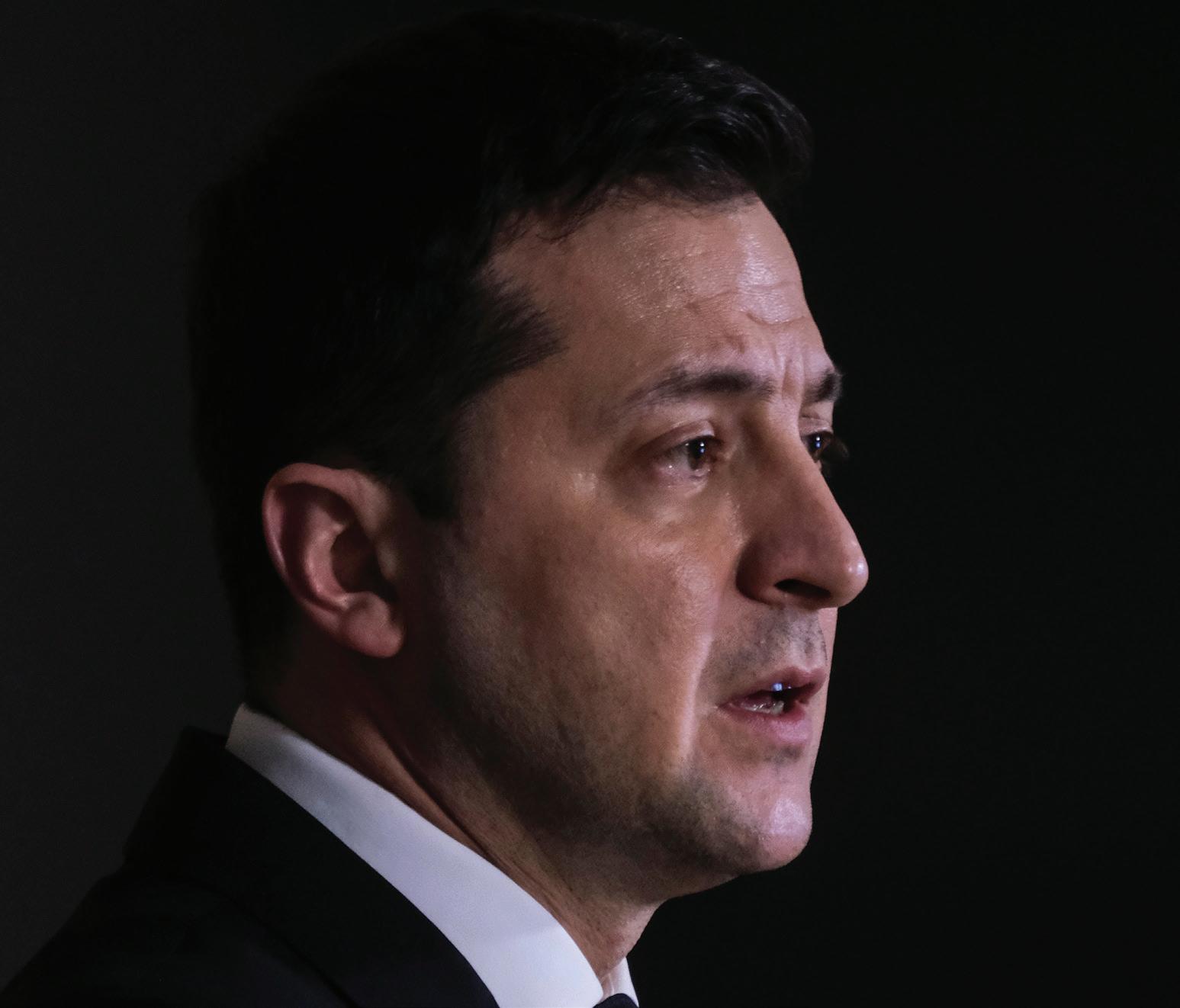
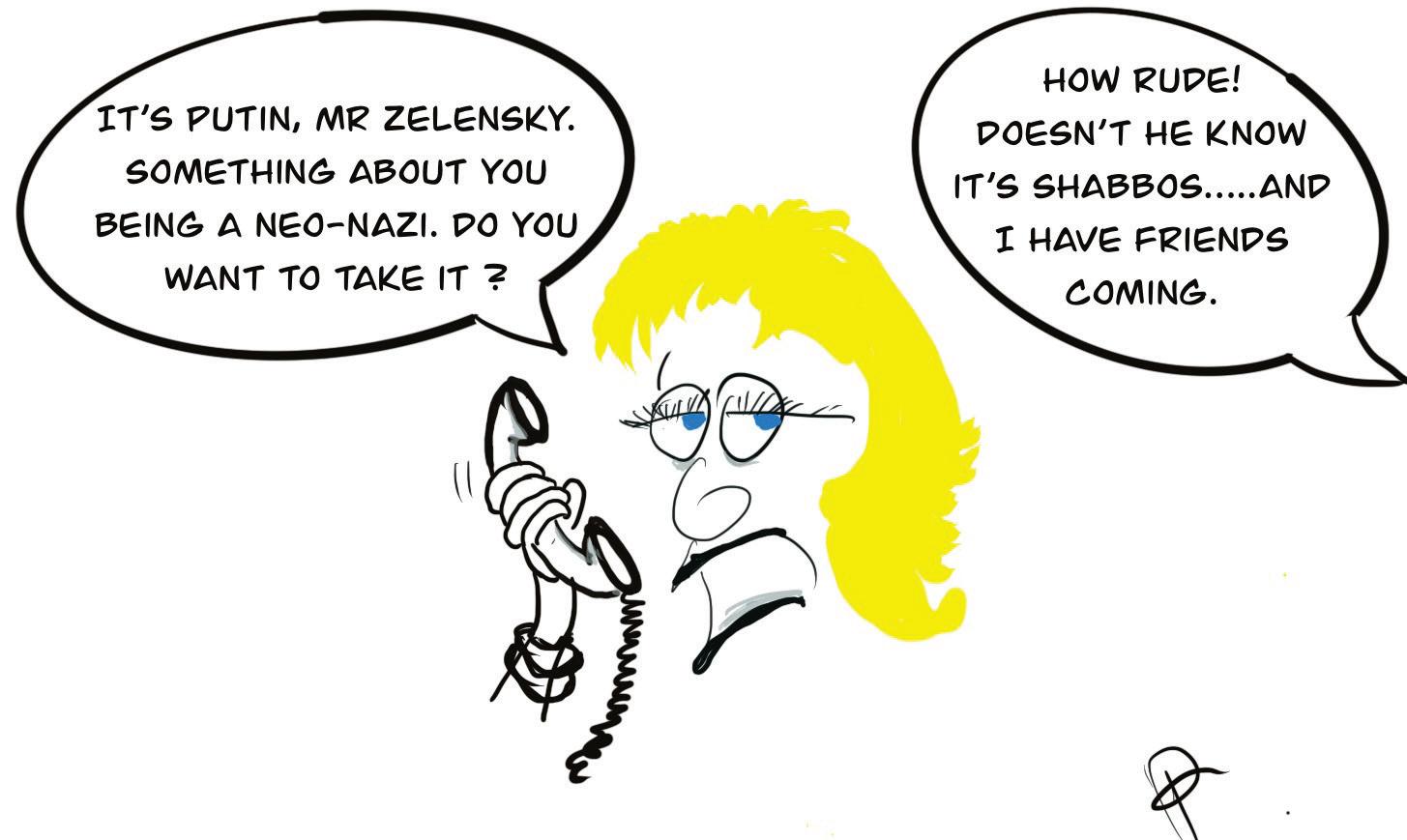

Jewish opportunities at Seniors’ Festival Jewish voice headlines UIA women’s event
COA SYDNEY
The Jewish community is capitalising on the NSW Seniors’ Festival with a series of special events and activities for the over 65s. First up, COA and U3A will present “A Tsunami of Change” on 25th March.
A free seniors’ forum and expo will be held between 9:30am and 2:30pm on 27th March at Easts Leagues Club on Spring Street in Bondi Junction
The forum is titled “Making Aged Care Work for You and Your Family: How to navigate the system”.
It has been organised by COA, the NSW Jewish Board of Deputies and the Bondi & Districts Chamber of Commerce, The expo will feature local services – from Kosher Meals on Wheels to Home Care packages and entertainment.
Those attending will be able to hear from seniors about their experiences navigating through the aged care system
There will also be a panel of industry experts, including those from COA Sydney, Montefiore, JewishCare and Carers NSW.
Finally, a plenary session will feature comedian, writer and women’s health advocate Jean Kittson.
On 28th March, singer Sasha Pak takes to the stage.
This year’s Seniors’ Festival also coincides with COA’s annual model seder, which will be held on 30th March.
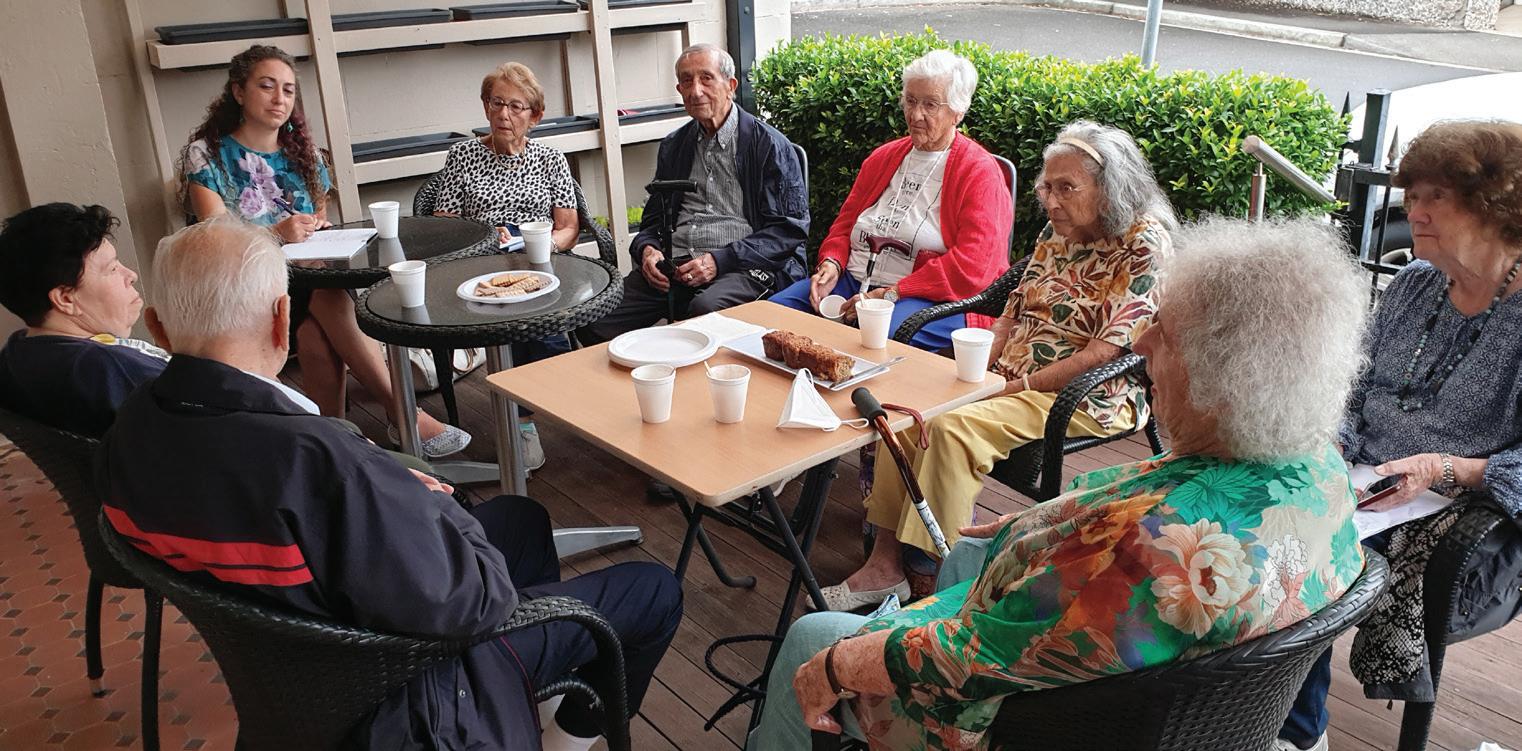
Preparing panellists for the seniors’ expo on 27th March UIA
Sunday, 20th March is a special day for UIA Women’s Division across Australia with a significant campaign event to be held between 3pm and 5pm.
It will feature an inspirational guest speaker livestreamed from the US, in support of the People of Israel.
Those participating will hear from award-winning American journalist, author and the former opinion editor at The New York Times, Bari Weiss.
Weiss’ controversial resignation from The New York Times drew heated coverage.
She accused the newspaper of “caving to the whims of critics on Twitter” and defended freedom of expression.
Weiss is the author of “How to Fight Antisemitism” and hosts a weekly podcast, titled “Honestly with Bari Weiss”.
In 2019, The Jerusalem Post named her the seventh most influential Jew in the world.
She has won several awards, including the Daniel Pearl Award for courage and integrity in journalism and Reason Foundation’s 2018 Bastiat Prize.
The latter honours writing that “best demonstrates the importance of freedom with originality, wit, and eloquence”.
In 2019, Vanity Fair called Weiss the “star opinion writer” of our times.
UIA NSW Women’s Division President Caroline Bolot said she was pleased to bring together hundreds of Jewish women to hear a world class speaker.
“Bari Weiss bravely uses her platform to champion free speech and tackle antiSemitism in all its forms,” Ms Bolot said.
The Women’s Division 2022 campaign in Sydney, Melbourne and Perth will focus on a project called “First-Line Families”.
It aims to assist at-risk youth and their families, who attend Keren Hayesod-UIA supported Jewish Agency youth villages in Israel.
UIA Australia and WA Women’s Division president Debbie Schaffer OAM said she was excited to be collaborating nationally for the first time.
“Uniting to support a national project is also a first. It strengthens our efforts to provide those in need with significant help to navigate through the hardships that the pandemic has caused.”
For more information, call 9361-4273 or email uiawomensdiv@uiansw.org.au
To book, go to uiaaustralia.org.au/ourevents/nsw
You can also join UIA NSW Women’s Division Facebook group for updates on its 2022 campaign: facebook.com/ groups/uianswwomensdivision/

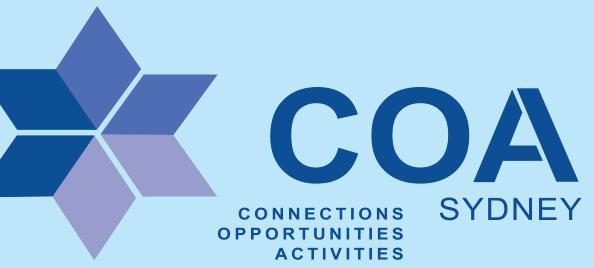

PURIM HARBOUR CRUISE 2022
T 17 M 11 - 2
Enjoy a delicious Kosher Lunch, Live Music from Tony Mazel, Information on services for seniors in Woollahra, and all the fun of a cruise on Sydney Harbour. Arrive to the wharf by 10:30am for a special Megillah reading from Rabbi Kastel OAM!


Afternoon Tea Bari We with iss
Award-winning journalist, author and former OpEd editor of the New York Times
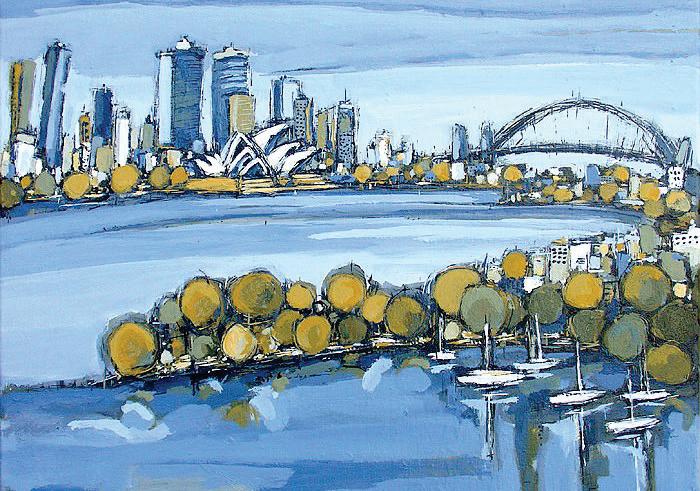
Boarding: Rose Bay Wharf, Lyne Park, Rose Bay. Cost: $45 for COA members, $50 for non-members. Transport: to Lyne Park $5 for COA Members only Booking Essential: Please contact Jackie at j.ryker@coasydney.org or by phone 83675051.
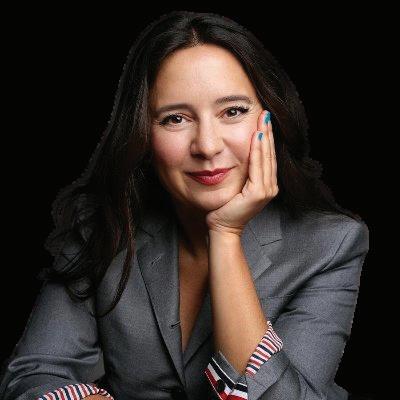
Funding for this event gratefully received from Woollahra Council and Advantaged Care.



